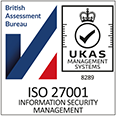Martin Frood & Nick Carter from University of Cumbria (Paramedic) on ‘professional uses’. This recording is from our 2022 MiniBash community event which was hosted in Birmingham, England. Videos are for educational personnel only and require a live educational email to watch. You can read a small snippet of the video transcript below.
–START TRANSCRIPT–
Very nice to meet everyone, a quick introduction, I’m Martin Frood, one of the principal’s at the University of Cumbria, Center of Excellence’s Paramedic Practice and next to myself is my esteemed colleague, Nick Carter, who’s one of the senior lectures working within the program. And the program, a bit of narrative is essentially bridging taking existing clinicians who are non-paramedic.
Sorry. Is that better?
I won’t start again. I won’t bore you. But essentially, a bit of narrative on a program is taking clinicians who are non-paramedics but working on an ambulance and actually supporting their learning and journey into a paramedic apprenticeship. And looking at their practice and evidencing it. So that’s a bit of narrative about what we’re going to go through today.
You can hear me now which is great, so I’m going to hand over to Nick.
So to give a bit of background then, the ambulance service takes people from all walks of life from different occupational services, those straight from school and funnels them through an education program that the ambulance service delivers in its own unique way. Taking them to kind of about here.
Traditionally, the ambulance service would upscale its own staff, take it through their own paramedic program. But then had a whole load of people becoming paramedics. That has now stopped. So paramedics now have to go through a university, which is where we kind of come in. We take people who have been at this level here, possibly up to twenty years or even sort of less, maybe sort of eighteen months, and we take them through a bridging program.
We take people who have got the occupational experience and exposure, but as I say at some point may not have those academic skills. We bridge them into the second year of the foundation degree. Out of that point, they get on for the third year, and qualify with us as paramedics.
But we had a few problems.
When we started the course, we had a whole load of portfolios completed on paper. Now as you know, ambulances operate in many different environments, including snow, wind, rain, and portfolios competed in ambulances as well, while people are often having their tea and coffee. The portfolios would come to us often stacks of paper filled with kind of tea stains and a whole load of other stuff, which made it very difficult to kind of deal with.
Students were required to access courses throughout the country to give you better background. The University of Cumbria deals with eleven UK Ambulance Services, including Channel Islands as well, so diversity across the country, we’ve got a great population to deal with.
We also have students working offline which presented a bit of an issue about how these sort of students then go on to complete their portfolios if you move to an electronic platform and evidence collation needs to require a sort of pragmatic approach.
–END TRANSCRIPT–







